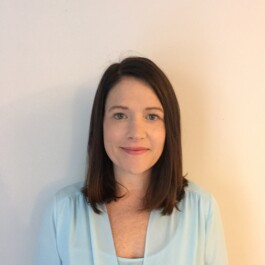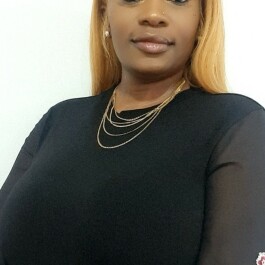- You can search by name, location, type of practitioner and type of consultation provided.
- Further refine your results by searching against gender, and languages spoken.
- Search for health professionals in rural and remote areas
- You can choose different mental health professionals including psychologists, psychiatrists, general practitioners, accredited mental health social workers, mental health nurses, occupational therapists, counsellors, and Aboriginal and Torres Strait Islander workers, all of who say a little about how they work with clients.

Mr John Kotroni
Psychologist
Since graduating with honours in psychology in 1989 from the University of New South Wales, John Kotroni has worked in Community Mental Health and Private Practice and developed expert professional psychological experience.
John has undergone specialist training in the areas of Cognitive Behavioural Therapy, anger management and Post Traumatic Stress Disorder (PTSD), suicide prevention, coping with grief, anxiety, parenting, critical incident stress management and trauma debriefing, Eye Movement Desensitisation and Reprocessing (EMDR), Emotional Release Counselling, court reports writing, creating resilience, cross- cultural awareness, management of fears and phobias as well as dealing with occupational stress.
A key strength is John Kotroni's thorough understanding of treating trauma gained through years of study, training and practice working in community mental health settings and private practice. In addition to John's strong clinical experience and practice, there is a strong emphasis placed not only on the individual but also the individual within their environment.
View Profile
John has undergone specialist training in the areas of Cognitive Behavioural Therapy, anger management and Post Traumatic Stress Disorder (PTSD), suicide prevention, coping with grief, anxiety, parenting, critical incident stress management and trauma debriefing, Eye Movement Desensitisation and Reprocessing (EMDR), Emotional Release Counselling, court reports writing, creating resilience, cross- cultural awareness, management of fears and phobias as well as dealing with occupational stress.
A key strength is John Kotroni's thorough understanding of treating trauma gained through years of study, training and practice working in community mental health settings and private practice. In addition to John's strong clinical experience and practice, there is a strong emphasis placed not only on the individual but also the individual within their environment.

Assoc Prof Christopher Lee
Psychologist
Dr Chris Lee has worked in private practice for 30 years. Alongside this private work, he is an Associate Professor at the University of Western Australia and an active educator of his peers. He has published research on understanding and treating PTSD. Before entering private practice, Chris worked as Senior Clinical Psychologist for the Health Department for many years and he continues to consult on treatment programmes for personality disorders. Chris runs a number of approved workshops for other therapists including treatment approaches to complex PTSD. He provides therapy and training for therapists in DBT, EMDR and Schema Therapy.
View Profile

Ms Colleen Morris
Psychologist
Colleen Morris is a warm and caring clinical psychologist. Colleen is experienced in working with a wide range of mental health issues and is very passionate about working with people who have experienced trauma. Colleen has experience in both private practice and the public sector. She has previously worked in a domestic violence agency, supporting adults and children who were victims of family violence. She has also worked on a mother-baby psychiatric ward. Colleen works collaboratively with her clients to help make sense of, process and reduce any distressing symptoms that they may be experiencing.
View Profile

Ms Dadirai Jabangwe
Social Worker
Hi, my name is Dadi and I am a Counsellor at Verity Care Provisions, empowering people in the Greater Brisbane area.
For too long, the importance of mental health has always been put on the back bench. As a Zimbabwean-born African-Australian woman; my goal is to raise awareness of mental health in my community and challenge the stigma associated with mental illness.
I have a Bachelor of Social Work and Social Planning from Flinders University and I am certified by the (AASW) Australian Association of Social Workers. My specialist training includes Cognitive Behaviour Therapy, Acceptance Commitment Therapy, Motivational Interviewing, Dialectical Behaviour informed Therapy (DBT), Mental Health First Aid, Advanced Grief Counselling and Prolonged Exposure.
I have several years’ experience working as a counsellor, helping many clients and their families. Before starting at Verity Care Provisions, I worked as a counsellor and case manager in sexual assault and disaster recovery.
As a counsellor, I understand everyone has a story. I believe everyone should have the right to process their past and be empowered enough to write their own next chapter.
About my clients:
I work with people from all walks of life, including Adults from 18+, Culturally and linguistically diverse backgrounds, Aboriginal & Torres Strait Islander populations, LGBTQIA+
, NDIS, and Victims of Crime
Areas of interest:
Domestic and Family Violence, Sexual violence, Acute Stress Disorder, Adjustment Disorders, Generalised Anxiety Disorders, Bipolar, Borderline Personality Disorder, Major Depressive Disorders, Dissociative Disorders, Obsessive-Compulsive Disorders (OCD), Post-Traumatic Stress Disorder (PTSD), Psychosis, Grief and Loss, Perinatal non-directive counselling, Panic Disorders.
Approaches used:
Trauma informed therapy, Acceptance & Commitment Therapy (ACT), Behavioural Therapy, Cognitive Behaviour Therapy (CBT), Dialectical Behaviour informed Therapy (DBT), Emotionally Focused Therapy, Interpersonal Psychotherapy, Mindfulness, Motivational Interviewing, Narrative Therapy, Positive Psychology, Psycho-education, Strengths based solution-focused therapy and Brief intervention.
View Profile
For too long, the importance of mental health has always been put on the back bench. As a Zimbabwean-born African-Australian woman; my goal is to raise awareness of mental health in my community and challenge the stigma associated with mental illness.
I have a Bachelor of Social Work and Social Planning from Flinders University and I am certified by the (AASW) Australian Association of Social Workers. My specialist training includes Cognitive Behaviour Therapy, Acceptance Commitment Therapy, Motivational Interviewing, Dialectical Behaviour informed Therapy (DBT), Mental Health First Aid, Advanced Grief Counselling and Prolonged Exposure.
I have several years’ experience working as a counsellor, helping many clients and their families. Before starting at Verity Care Provisions, I worked as a counsellor and case manager in sexual assault and disaster recovery.
As a counsellor, I understand everyone has a story. I believe everyone should have the right to process their past and be empowered enough to write their own next chapter.
About my clients:
I work with people from all walks of life, including Adults from 18+, Culturally and linguistically diverse backgrounds, Aboriginal & Torres Strait Islander populations, LGBTQIA+
, NDIS, and Victims of Crime
Areas of interest:
Domestic and Family Violence, Sexual violence, Acute Stress Disorder, Adjustment Disorders, Generalised Anxiety Disorders, Bipolar, Borderline Personality Disorder, Major Depressive Disorders, Dissociative Disorders, Obsessive-Compulsive Disorders (OCD), Post-Traumatic Stress Disorder (PTSD), Psychosis, Grief and Loss, Perinatal non-directive counselling, Panic Disorders.
Approaches used:
Trauma informed therapy, Acceptance & Commitment Therapy (ACT), Behavioural Therapy, Cognitive Behaviour Therapy (CBT), Dialectical Behaviour informed Therapy (DBT), Emotionally Focused Therapy, Interpersonal Psychotherapy, Mindfulness, Motivational Interviewing, Narrative Therapy, Positive Psychology, Psycho-education, Strengths based solution-focused therapy and Brief intervention.

Mr Daniello Cuda
Psychologist
Danny Cuda is a fully registered Psychologist with the Psychology Board of Australia and an Associate Member of the Australian Psychological Society. He is also a registered Personal Trainer with Fitness Australia. Danny has worked in a variety of contexts over the past 14 years; forensics and adolescent mental health, including 10 years in private practice. He completed his 4-year Bachelor of Psychology degree at James Cook University and graduated in 2000, and subsequently completed his 2-year internship in a forensic setting. Danny maintains a high standard of practice via continued professional development and he is currently completing the Master in Counselling program at the University of New England.
Danny’s objectives are to improve the well-being of others through a systemic and integrated framework. His primary focus is with individuals, couples and families; providing a safe platform to share their narratives and to move towards meaningful change. He believes it is important to work with people based upon their needs and offer a service that focuses on their goals and objectives. He has a strong commitment towards evidence-based practice, and passionate about working with individuals, couples and families who may present with: depression, anxiety, post-trauma, personality and identity concerns, loss and grief, complex trauma, relationship difficulties, personal and work-related stressors, substance misuse, and adjustment. The following theoretical approaches are part of the framework he integrates and operates within, Cognitive Behaviour Therapy (CBT), Schema Therapy (ST), Systems Theory/Internal Family Systems (IFS), Person-Centred Therapy (PCT), Narrative Therapy (NT), Acceptance Commitment Therapy (ACT), Mindfulness, and psychoeducation (somatic and nervous system).
Danny acknowledges that physical health and self-care play an integral role in our overall well-being. Chronic disease and lifestyle choices can cause significant physical and mental health issues. In his professional role and capacity, he also explores self-care practices and provides support to others by promoting an active and holistic approach to their well-being.
View Profile
Danny’s objectives are to improve the well-being of others through a systemic and integrated framework. His primary focus is with individuals, couples and families; providing a safe platform to share their narratives and to move towards meaningful change. He believes it is important to work with people based upon their needs and offer a service that focuses on their goals and objectives. He has a strong commitment towards evidence-based practice, and passionate about working with individuals, couples and families who may present with: depression, anxiety, post-trauma, personality and identity concerns, loss and grief, complex trauma, relationship difficulties, personal and work-related stressors, substance misuse, and adjustment. The following theoretical approaches are part of the framework he integrates and operates within, Cognitive Behaviour Therapy (CBT), Schema Therapy (ST), Systems Theory/Internal Family Systems (IFS), Person-Centred Therapy (PCT), Narrative Therapy (NT), Acceptance Commitment Therapy (ACT), Mindfulness, and psychoeducation (somatic and nervous system).
Danny acknowledges that physical health and self-care play an integral role in our overall well-being. Chronic disease and lifestyle choices can cause significant physical and mental health issues. In his professional role and capacity, he also explores self-care practices and provides support to others by promoting an active and holistic approach to their well-being.

Mr
Social Worker
Davide is an Accredited Mental Health Social Worker with post-graduate qualifications in psychology and social work. He has experience working in both private practice and the non-government sector since 2010. Davide is also an Accredited Family Group Conference Facilitator and Family Therapist with expertise working with individuals who have experienced trauma and trauma-related stress and anxiety. Davide holds a unique role at the Resilience Centre specifically assisting separated families with court related matters and family relationships post-separation.
Davide uses an integrative approach in his practice, drawing on various techniques, which include: Solution-Focused Brief Therapy (SFBT) within a strength-based approach, Acceptance and Commitment Therapy (ACT), Trauma-Focused Cognitive Behaviour Therapy (TF-CBT) and Dialectical Behaviour Therapy (DBT).
Davide uses an integrative approach in his practice, drawing on various techniques, which include: Solution-Focused Brief Therapy (SFBT) within a strength-based approach, Acceptance and Commitment Therapy (ACT), Trauma-Focused Cognitive Behaviour Therapy (TF-CBT) and Dialectical Behaviour Therapy (DBT).
Italian
View Profile

Ms Deb Klye
Social Worker
Deb Klye has been providing trauma therapy for over 15 years. She is a member of the Clinical College of the Australian Association of Social Workers and provides supervision for other workers in this field. ""She has an outstanding knowledge of the ethical and legal issues surrounding her work."" and ""works especially well with those from less advantaged settings."" As a survivor of childhood abuse she is aware of achievements in recovery that the appropriate models and levels of support can achieve.
View Profile

Ms Debra Scollard
Social Worker
I offer a safe and genuine space to support you to explore, understand, and reduce/resolve the impact of complex Trauma on your mind and body.
I have long been an advocate for trauma informed therapeutic models. Systems models of therapy are essential in understanding the the whole context of your experiences and the ripple effect they have had on your life. As a Trauma Informed Systems therapist (Mental Health Social Worker) I am interested in ‘what has happened’ to you, rather than ‘what is wrong’ . I don’t emphasis diagnosis except to help you understand how you needed to adapt to survive, and this needs to be celebrated .
Complex trauma changes the brain but Neuroscience and holistic health treatments reduce and heal the impact trauma. Neuroscience shows evidence of how our brains are effected by trauma. When the brain is traumatised our Amygdala becomes enlarged, leading us to become overly anxious, withdrawn, reactive, drawn to intensity. Our brains can become addicted to stimulation often leading to further distress if we are not aware; and often become rigid or chaotic.
Neuro-plasticity is the evidence of neuro-scientific research that proves our brains are pliable at any age and that with new attention, awareness, skills, practice, and care we can change/heal our brains. (see Dan Siegel Mindsight)
Talking therapies: It is very important to have as many opportunities as one needs to talk and express the complicated thoughts and emotions that often overwhelm during and after trauma. Sometimes this is not necessary as long as one's subconscious is understood and respected for the ways it has adapted. Safety to explore and express parts of our mind help us reprocess the memory and helps to reduce the pent up energy around the traumatic event.
Family Systems models look at the relationships in our lives. I am very aware of the power of relationships to strengthen and heal, and also their power to deeply hurt. Exploring and understanding your complex relationships with others, family, society, and yourself is important in enabling recovery to occur. Please see my website www.seedsofrenewal.com.au
View Profile
I have long been an advocate for trauma informed therapeutic models. Systems models of therapy are essential in understanding the the whole context of your experiences and the ripple effect they have had on your life. As a Trauma Informed Systems therapist (Mental Health Social Worker) I am interested in ‘what has happened’ to you, rather than ‘what is wrong’ . I don’t emphasis diagnosis except to help you understand how you needed to adapt to survive, and this needs to be celebrated .
Complex trauma changes the brain but Neuroscience and holistic health treatments reduce and heal the impact trauma. Neuroscience shows evidence of how our brains are effected by trauma. When the brain is traumatised our Amygdala becomes enlarged, leading us to become overly anxious, withdrawn, reactive, drawn to intensity. Our brains can become addicted to stimulation often leading to further distress if we are not aware; and often become rigid or chaotic.
Neuro-plasticity is the evidence of neuro-scientific research that proves our brains are pliable at any age and that with new attention, awareness, skills, practice, and care we can change/heal our brains. (see Dan Siegel Mindsight)
Talking therapies: It is very important to have as many opportunities as one needs to talk and express the complicated thoughts and emotions that often overwhelm during and after trauma. Sometimes this is not necessary as long as one's subconscious is understood and respected for the ways it has adapted. Safety to explore and express parts of our mind help us reprocess the memory and helps to reduce the pent up energy around the traumatic event.
Family Systems models look at the relationships in our lives. I am very aware of the power of relationships to strengthen and heal, and also their power to deeply hurt. Exploring and understanding your complex relationships with others, family, society, and yourself is important in enabling recovery to occur. Please see my website www.seedsofrenewal.com.au

Dr Deirdre Thompson
Psychologist
As a Clinical Psychologist I have been working in the field of trauma for 30 years, providing support to a diverse group of clients, many of whom have been directly impacted by child sexual abuse both in an institutional and family setting. I am very familiar with the findings of the Royal Commission into Institutional Child Sexual Abuse and the Redress scheme that resulted from their recommendations.
View Profile

Denise Hand
Psychologist
For 10 years I gained experience working in Community Mental health, assessing and using psychological interventions in the treatment of major mental illness, including PTSD in children, youth, and adults. In the past 10 years I have worked with cancer patients and their carers, and treated disorders of adjustment, mood, anxiety, grief, bereavement, anxiety, phobias and trauma (including PTSD) which may occur from developing a life-limiting illness such as cancer, and iatrogenic effects.
View Profile
- Previous Page ←
- Page 1
- ...
- Page 20
- Page 21
- Page 22
- Page 23
- Page 24
- ...
- Page 57
- Next Page→